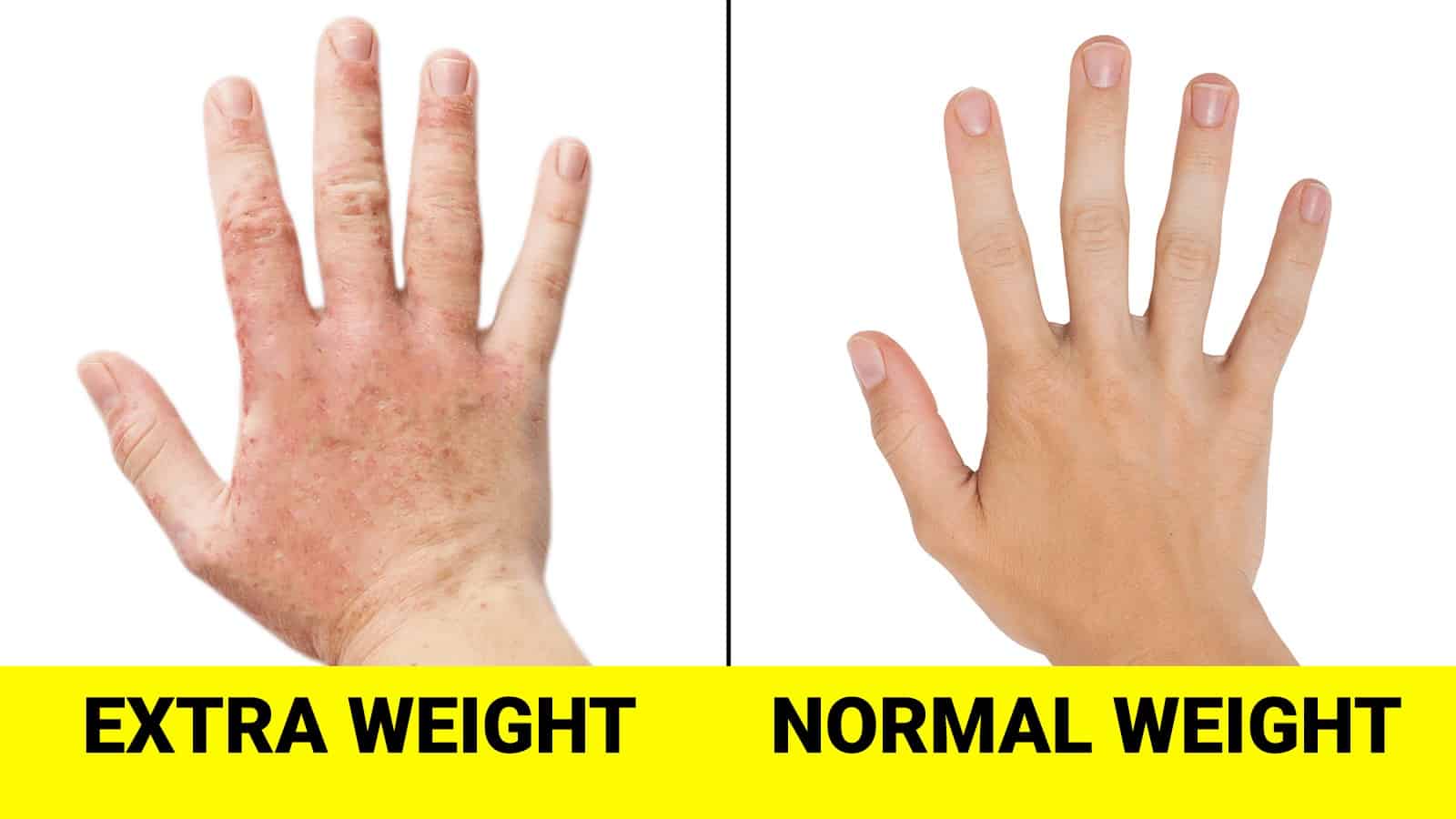Have you ever questioned yourself about how to lose weight? Anyone who has tried to lose extra weight will say that it takes a lot of effort and commitment. The benefits of shedding off those extra pounds, however, can change (and prolong) your life. Here are some science-backed reasons that explain the benefits of weight loss.
Here Are 15 Things That Happen to Your Body When You Lose Extra Weight
“While weight loss is important, what’s more important is the quality of food you put in your body – food is information that quickly changes your metabolism and genes.” – Mark Hyman
1. Your nails become stronger.
Brittle nails could be the result of iron deficiency due to obesity, as per a study published in the journal Nutrients. Experts recommend adding more fish, spinach, and legumes to your diet, which are not only high in iron but can also help with your weight loss, as these foods contain healthy fat.
2. Your joint and back pains disappear.
A strong evidence from a study published in Obesity Reviews shows that when you lose extra weight, it relieves joint and back pains because there’s less pressure on your body. Experts said that for each pound you lose, you could lessen the load your knees support by as much as four times, so you can walk better, stand or sit longer, and move about without feeling that continual pain.
3. Your dental health improves.
Losing weight prevents the development of periodontitis, which could cause frequent inflammation of the gums. A 2003 study revealed that it’s common for obese individuals to have periodontal disease, but people with lower body mass index (BMI) presented fewer risks of dental problems.
4. Your skin will get clearer.
Obesity and overweight issues have been linked to various skin conditions like allergies, dark or red patches, skin tags, psoriasis and itchy skin, according to the Nursing Standard. If you lose extra weight, you’ll develop less dry skin, as well as slowly repair the damage that fat tissues have caused in your epidermis.
5. Your body processes insulin better.
Most people with weight issues have diabetes because fat makes the body less responsive to insulin, the hormone that regulates the blood glucose levels. If you lose those extra pounds, your body becomes more insulin sensitive, according to a 2017 study published in Nutrition & Diabetes. In other words, you decrease your risk of developing Type II diabetes if you’re not overweight.
6. Your kidneys function better as well.
Too many fat tissues in the body can cause a deficiency in nephron, which supposedly helps the kidneys absorb and filter toxins. When you lose the extra weight, you lessen your risk of a kidney failure, according to a research published in the American Journal of Kidney Diseases.
7. You lessen your risk of cancer or beat the disease.
Some cancers, including the most common type of breast cancer, are linked to obesity and overweight problems, according to the National Cancer Institute. Apparently, fat tissues affect the hormones that damage DNA, which then triggers cancer development. Losing weight, therefore, mitigates this risk, as well as increases the chances of beating the disease.
8. Your heart becomes healthier.
People who are overweight are prone to heart problems. Doctors frequently advise patients with cardiovascular diseases to start exercising to manage their weight. Your body gains a lot of health benefits even if you lose just five to 15 percent of extra weight, according to experts at the Washington University School of Medicine. It’s great if you’re aiming to lose extra weight. Your efforts of dropping just a few percent of your body weight quickly pay off, especially for your heart.
9. You stop snoring.
Interlinked to cardiovascular problems, you could also reduce your snoring and sleep problems with weight loss. The American College of Physicians actually recommends losing weight first for sleep apnea patients, as this decreases extra fat tissue in the throat. If you are overweight, you snore louder because your airways are blocked.
10. Your blood pressure levels off.
High blood pressure or hypertension can lead to stroke and heart attack, but you can mitigate the risks through weight loss and exercise. Losing weight is a better option than taking hypertension medications to keep your blood pressure low, according to experts at the Cochrane Collaboration.
11. You’ll feel colder.
You’ll lose natural insulators in your body with weight loss, so you could be more inclined to bring a cardigan or a jacket at the movie house or restaurant. Weight loss causes the thyroid hormones to decrease, according to a study in the journal Thyroid Dysfunction: Hypothyroidism, Thyrotoxicosis, and Thyroid Function Tests, which could be why you’ll feel chillier.
12. Your sex life improves.
Having a fit and leaner body will apparently make sex better, according to the respondents of a survey from Duke University Medical Center. In the same poll, those who were obese or overweight indicated that they were 25 times more dissatisfied with their sex life.
13. You become fertile.
Weight loss can improve the odds of women getting pregnant, especially if they have polycystic ovary syndrome (PCOS), which has been linked to obesity. On the other hand, overweight men improved the quality of their semen by losing weight and improving their lifestyle, which also contributed to their ability to reproduce, according to the journal Reproductive Health.
14. Your mood is more positive.
There’s a mood-boosting benefit to losing weight through exercises, according to Dr. Jeremy Sibold, who conducted a study on weight loss. Ideally, he said that your happy mood could last for up to 12 hours. Why is this? First, even moderate exercise routines lower your stress hormones. Next, if you pair up exercises with a good diet, you’re likely to boost your mood even more. A poor diet has been linked to mood swings and depression, according to a paper in Psychiatry Research.
15. Your brain’s cognitive function improves.
Fat tissues cause inflammation, which can irritate and affect every organ in the body, including the brain. It’s imperative that you lose the extra weight so your brain function doesn’t deteriorate. A study in the Journal of Clinical Endocrinology and Metabolism showed that women who lost weight following a bariatric surgery manifested sharper planning, organizing, and decision-making skills. Importantly, all of these involve the brain’s cognitive functions. A more recent study in the journal Neuroscience & Behavioral Reviews showed significant improvements in the attention, memory, language, and motor skills of previously obese and overweight people who lost weight.
Final thoughts
In closing, if you lose extra weight, you’ll find a big boost to your self-image and appearance. More than that, you’ll feel so much better on the inside! So, keep exercising, be active, and maintain a good diet for a healthier life.
https://youtu.be/yG-G9_LOkLA


















